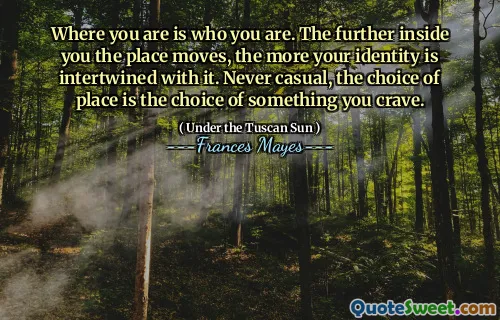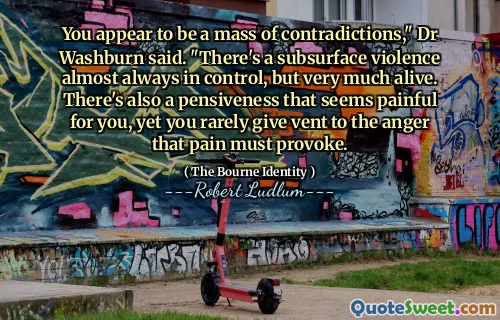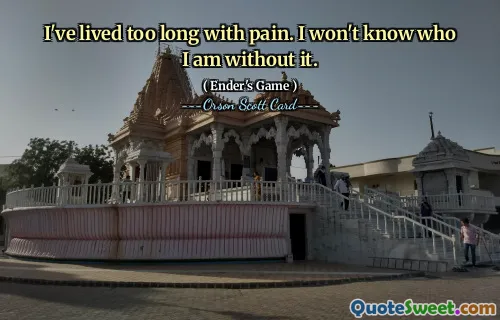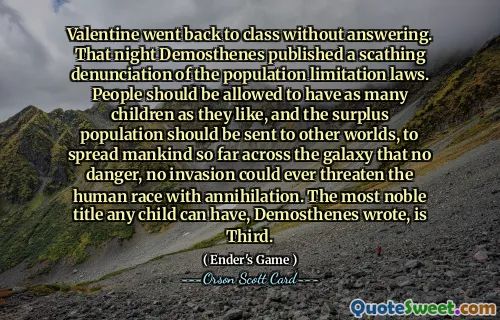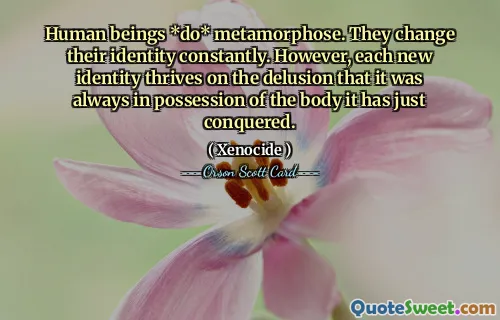
You do know, right, that between the no-longer and the still-to-come you are being continually tattooed, inked with the skulls of everyone you've ever loved—the you & the you & the you & the you—you don't sit in a chair, thumb through a binder, pick a design, it simply happens each time you bring your fingers to your face to inhale him back into you... tiny skulls, some of us are covered. You, love, could simply tattoo an open door, light pouring in from somewhere outside, you could make your body a door so it appears you
This excerpt beautifully depicts the way our past and present experiences leave an indelible mark on our very being, as if we are continually inked with memories and connections to those we've loved. The metaphor of being tattooed with 'skulls' of everyone we've loved evokes a sense of permanence and deep impact, illustrating how our identity is shaped by these emotional imprints beyond our conscious control. It's striking that the process is described not as a deliberate action or plan but as something that 'simply happens,' emphasizing how relationships and memories inherently weave themselves into our existence. The imagery of inhaling someone back into oneself suggests an intimate reclaiming or revival of feelings attached to past loves, signifying their ongoing presence within us.
Moreover, the suggestion that one could 'tattoo an open door' and 'make your body a door so it appears' hints at openness and vulnerability as a form of self-expression and transformation. It champions the idea of allowing light and possibilities to enter through us, reflecting a conscious choice to embody receptivity and change. The juxtaposition between the fixed nature of 'skulls' as tattoos and the dynamic vitality of an 'open door' hints at the tension between what defines us from the past and how we choose to evolve.
Nick Flynn’s words resonate with the intangible process of emotional and existential marking. It invites reflection on how we carry our histories invisibly yet tangibly, and how embracing openness might allow us to reinterpret or transcend these inherited imprints. This passage eloquently captures the perpetual dialogue between memory, love, and the self, highlighting the profound ways we are shaped by those we've loved and how we might choose to reimagine ourselves continuously.







